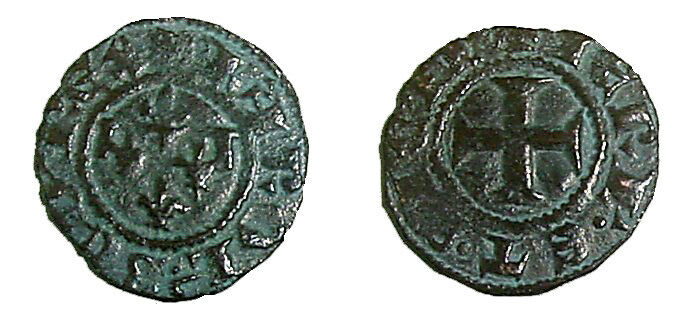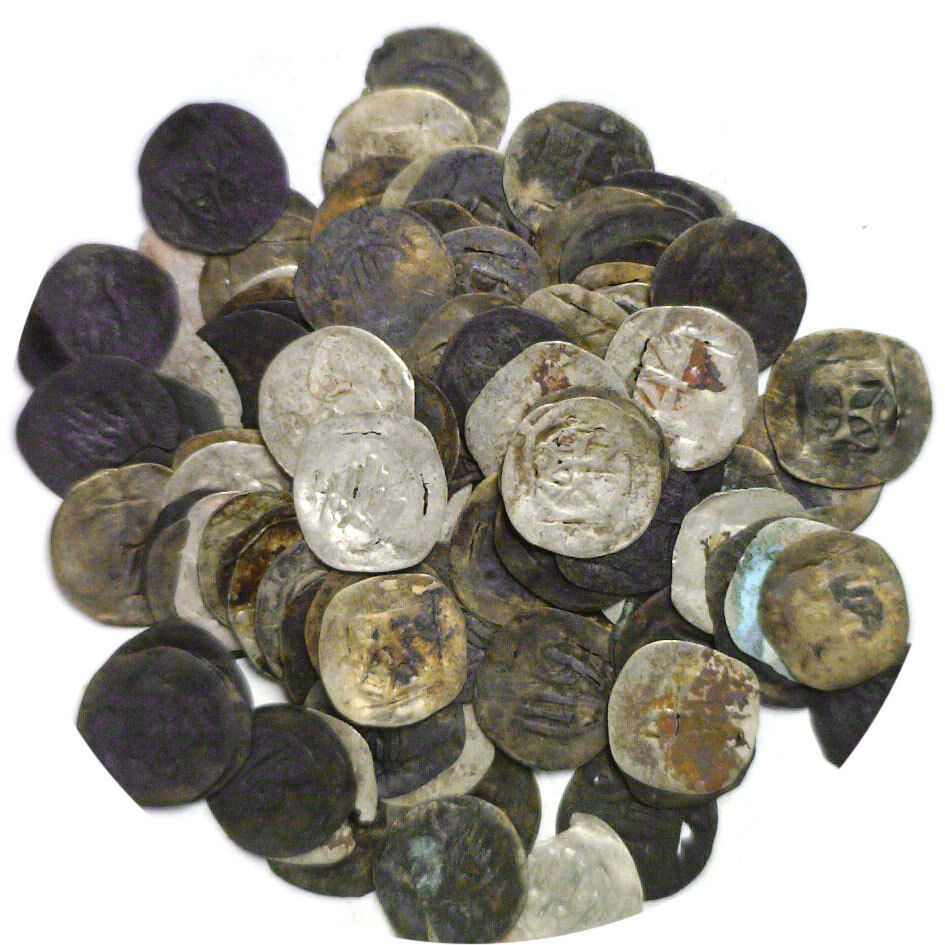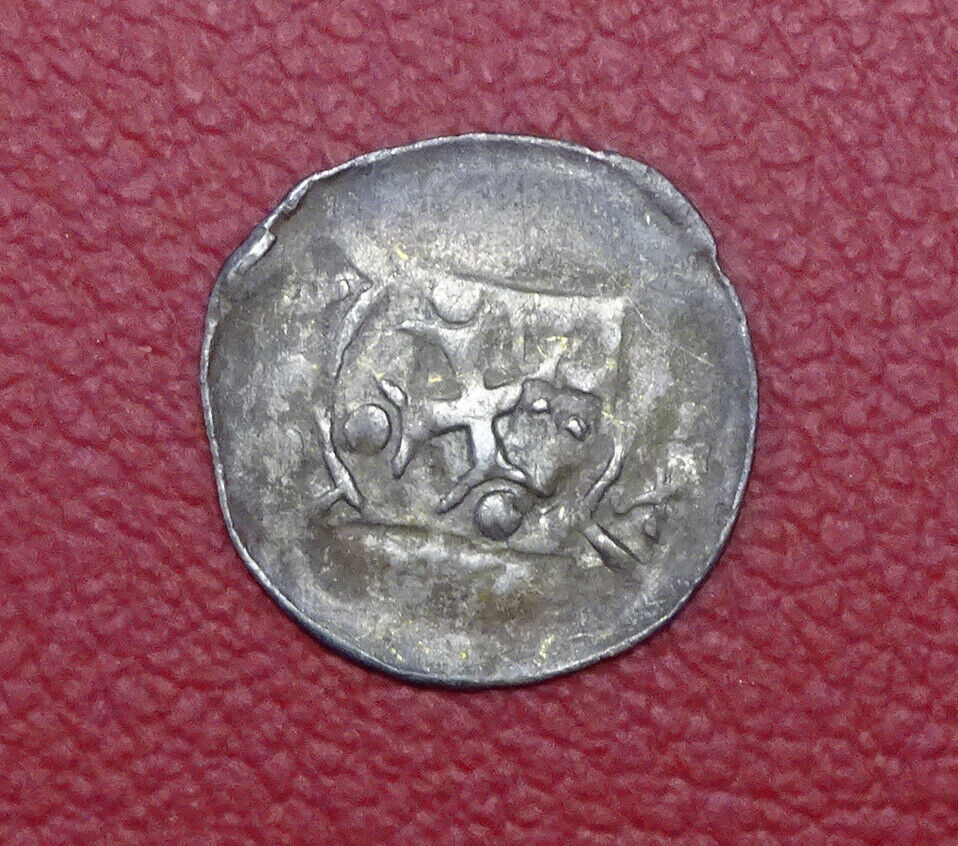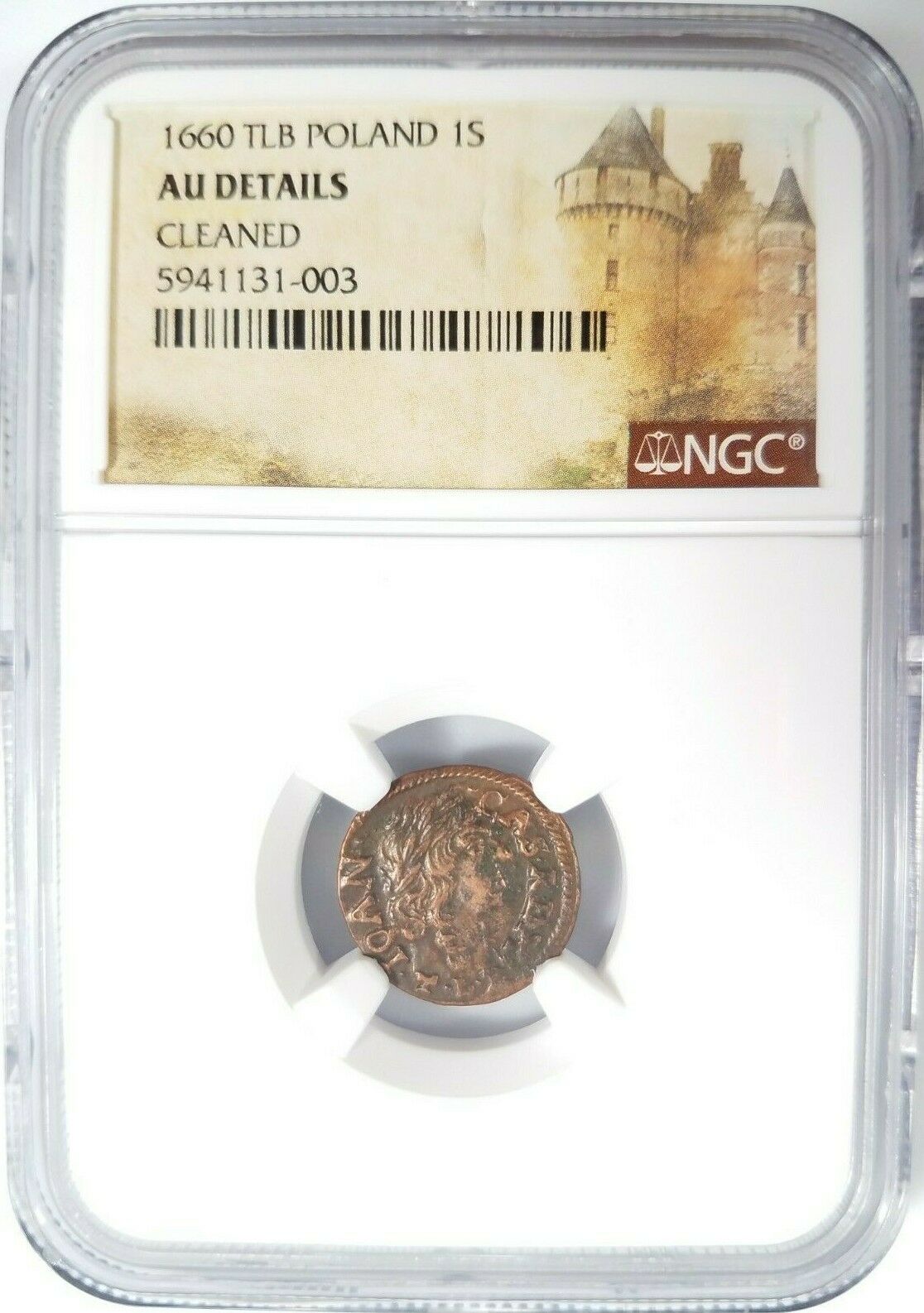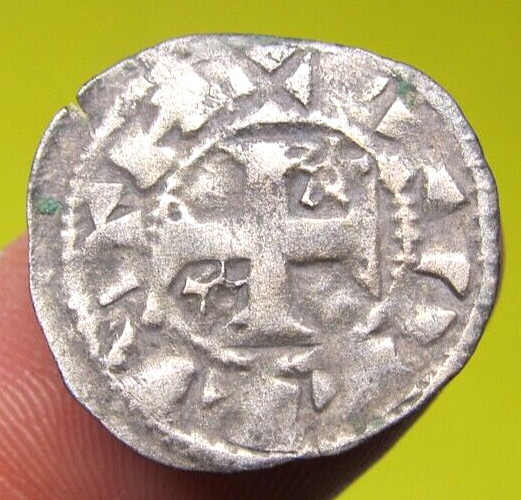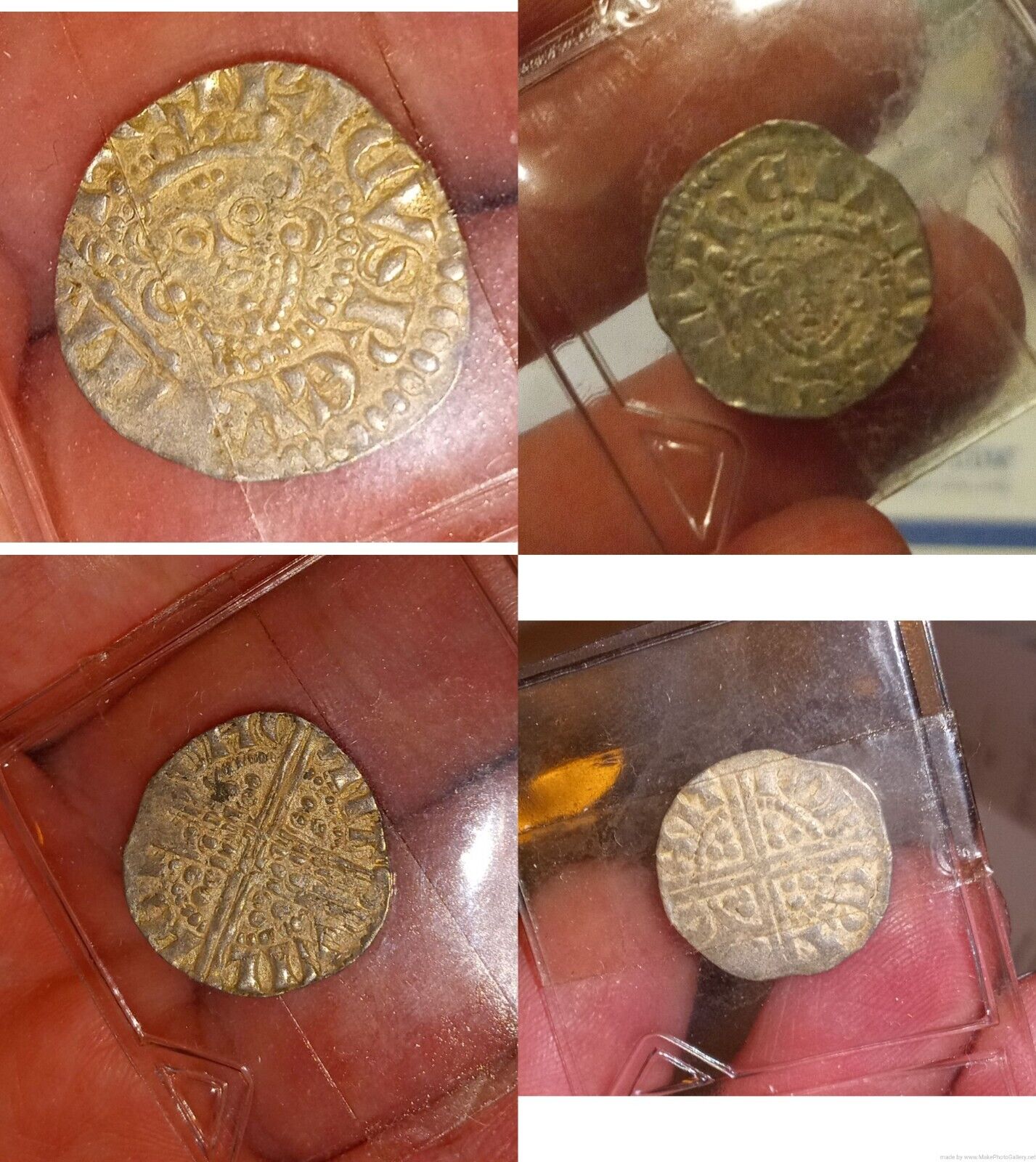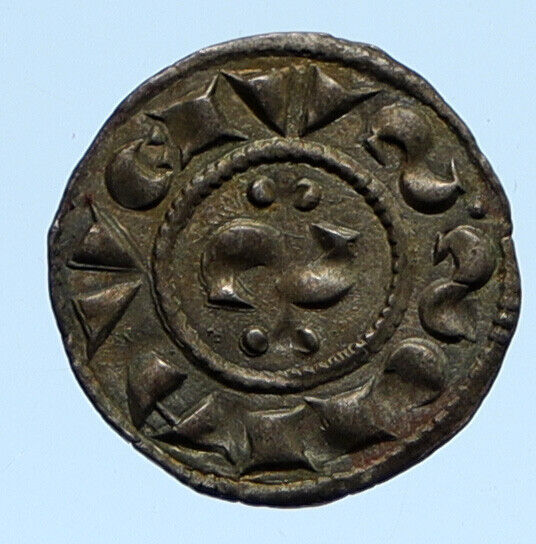-40%
Italy Sicily Feudal Coin: Charles II of Anjou (1285-1309)
$ 25.34
- Description
- Size Guide
Description
Denero Gherardino, 14mm, .42gr. Obv: +KAROL'.SCD'.REX, central four lis. Rev: +IERL'.ET.SICIL', central cross.
Mint is Naples
. Biaggi 1633; MEC14: 693; Spahr -.
Charles
inherited his father Charles I's titles in Italy but was unsuccessful in making them operational. In fact, he was unable to assume any of his responsibilities on his father's death. In 1284 he took several war galleys out for a test run from Naples but wasn't aware that there was a significant Aragonese fleet in the neighborhood. He lost his galleys and was taken prisoner. He was transferred to Spain, where he remained in captivity until 1288. It is fortunate for him that he ended up a prisoner in Spain, since the Sicilians were keen to kill him to revenge Conradin's death. Benjamin (221) writes that Charles was willing to 'renounce his rights to Sicily and Malta' in order to get out of jail. This was attractive to the Aragonese, in that it would have resolved James I's claim to the island and brought military and economic stability to the area. The pope (Honorius IV), in a recent line of popes who were committed to the Angevin control of Sicily and who had engaged in military action to that end, was not willing to lose the prospect of control over the island and refused to allow Charles to renounce his claim. As a result of negotiations Charles was finally released and crowned king of Sicily.
This title
was no more than symbolic, in that he never actually controlled Sicily. Likewise, so was his title as 'king of Jerusalem,' since likewise, he never controlled that city. Charles was an unenthusiastic warrior, financed and urged on by the papacy to fight in Italy.
Charles
did reign as king of Naples. Charles was also intended, via the diplomacy of his father Charles I, to become king of Arles and Vienne. In anticipation, he was named count of Provence. As it turned out, the inheritance of the proposed Burgundian kingdom was delayed again until Charles I's' heir, Charles Martel was married and ready to assume this throne. The kingdom of Burgundy never materialized and Charles Martel eventually, through marriage, became king of Hungary. Charles II had to spend much of his time trying to stabilize his lands in Italy but he continued to hold out hope, never realized, for the kingship in Arles and Vienne.
Free shipping in the US
